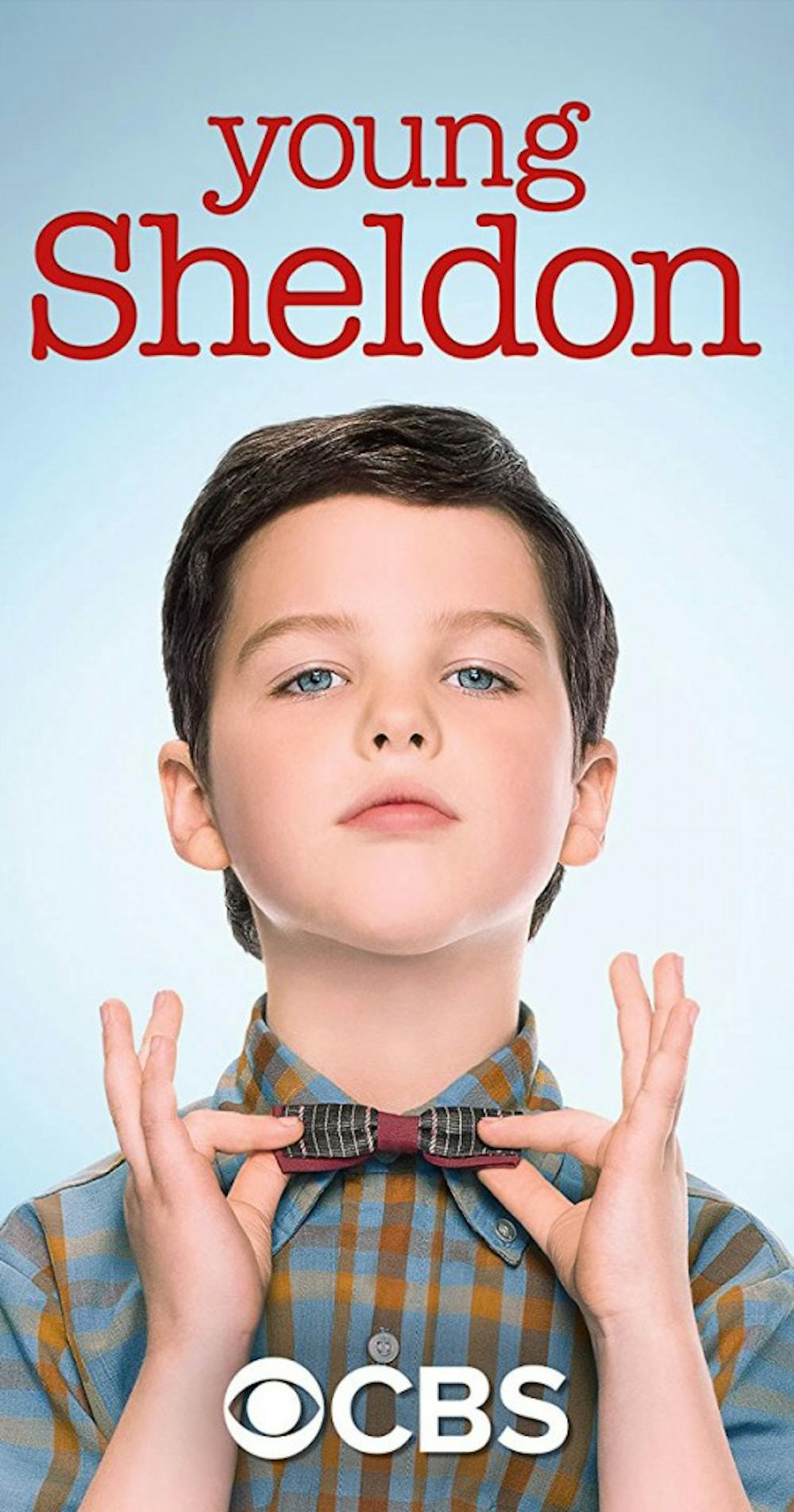“Bazinga!,” theoretical physicist and arguable madman Sheldon Cooper (Jim Parsons) says as he sits behind a monolithic desk and wags a finger at sometimes-friend Raj Koothrappali (Kunal Nayyar). “You’ve fallen victim to another one of my classic practical jokes,” he says in season three, episode four of “The Big Bang Theory.”
It is impossible not to sympathize with Raj after the Sept. 25 debut of “Young Sheldon,” a new prequel series based off of “The Big Bang Theory.” The spinoff centers on the nine-year-old boy genius as he grows up in 1989 East Texas, and the show itself has all the trappings of a Sheldon practical joke — which is to say it’s humorless.
This show, like its predecessor, relies heavily on archetype. Sheldon (Iain Armitage) starts high school alongside his much older brother, and he fantasizes about a “haven of higher learning” only to encounter a tattooed boy, pregnant girl and several smokers. True to form, Sheldon has memorized the entire student handbook before arriving on campus, but his insults toward his peers and faculty, which comprise the pilot’s primary conflict, are too weak for belly laughs.
It is more sad than laughable that everyone in young Sheldon’s life sees him as a burden. His mother Mary (Zoe Perry) has to defend Sheldon even from the antics of his own father (Lance Barber) and battle the principal to ensure Sheldon can continue with public high school.
The humor of “The Big Bang Theory” depends on an incongruity between adult Sheldon’s scientific genius and real-life cluelessness. After all, an unreasonable, praying mantis of a man is funny, but an unreasonable, awkward child is just a child.
In “Big Bang,” experimental physicist Leonard Hofstadter’s (Johnny Galecki) adoption of a forty-something-year-old man as a surrogate son allows for easy conflict between the freak-geeks in apartment 4A and the blonde, street-smart actress in 4B. Sheldon gets in the way of Leonard’s already hopeless love life, which is good for an occasional chuckle.
“Young Sheldon,” however, must do away with the sexploits of supporting characters relied upon in “Big Bang.” Instead innuendos become their ghostly imitation. In a church pew, Sheldon and his twin sister bicker about when his testicles are going to drop. Later Sheldon rats out a peer for wearing a t-shirt that says “Bite me.” Each moment is forced and unnatural. Young Sheldon has already established himself as too empathetic for the blundering social gracelessness of his older self to feel believable.
Though he is a nine-year-old atheist, he agrees to go to church because he “believe[s] in Mom.” Eventually he also holds his father’s hand — sans mittens, a feat for a germaphobe — to comfort him after realizing his father is sad. This is a softened Sheldon, yet is also supposedly the same one who will mature into a man who claps himself on the back when he correctly guesses whether a friend is sad, angry or sarcastic after an impassioned speech. In fact, season nine, episode 13 of “The Big Bang Theory” — entitled “The Empathy Optimization” — is devoted entirely to Sheldon being schooled in empathy.
Sheldon’s old tricks are not the same in a new setting, yet his notoriety makes the enthusiasm behind “Young Sheldon” understandable. In an era of television relying on the fast-forwarding of 1990s and early 2000s sitcoms into the present day, whether it be “Fuller House,” “Gilmore Girls: A Year in the Life” or “Will & Grace,” nothing was stopping a made-for-now show like “Big Bang” from rewinding to 1989.
Nothing sounds better than a nostalgic trip down lanes of childhoods past, but with wavering characterization, watery punchlines and no laugh track, the enthusiasm fueling “Young Sheldon” gets stuck on its way to the audience. The new show cannot help but pale compared to its predecessor, and based on this pilot, it is shaping up to be Sheldon’s biggest “Bazinga!” yet.







